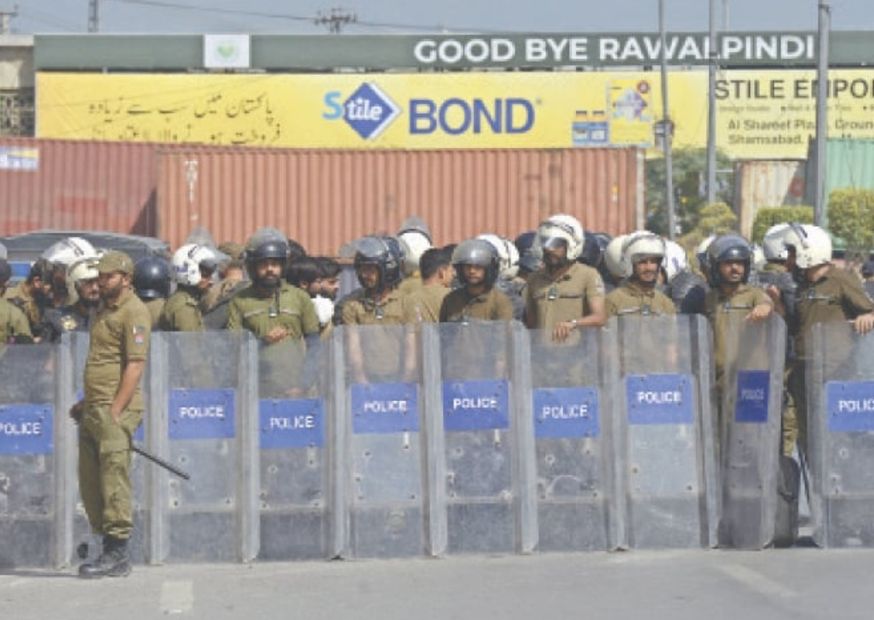ISLAMABAD/RAWALPINDI, PAKISTAN: The twin cities of Islamabad and Rawalpindi came to a standstill on Thursday as authorities launched an extensive security clampdown to prevent a potential protest by the Tehreek-i-Labbaik Pakistan (TLP) — despite no demonstrators appearing on the streets.
Major highways, intersections, and connecting roads between the two cities were sealed with containers, while Faizabad Interchange, Zero Point, Rawat T-Cross, and Chungi No. 26 were entirely blocked off. The blockade paralyzed public movement, disrupted office operations, and left thousands of commuters stranded. Metro Bus and CDA’s electric bus services were suspended, forcing residents to walk long distances to reach their destinations.
Security forces were deployed in massive numbers, with over 7,000 personnel from the police, Rangers, Frontier Constabulary, and Elite Force stationed across sensitive points. Authorities also enforced Section 144 in Rawalpindi, banning any form of public gathering or demonstration.
The severe restrictions spilled over into daily life — markets and schools remained partially shut, intercity transport was halted, and several flights from Islamabad Airport were delayed due to staff being unable to reach terminals. Reports also emerged of intermittent mobile and internet service disruptions, adding to the chaos and confusion across the cities.
Despite the extensive preparations, no TLP marchers or rallies were reported anywhere in the twin cities throughout the day. Officials, however, said the blockade would remain until a formal assurance is received that no protest will take place.
Residents and business owners expressed frustration over the lockdown, calling it “collective punishment” for a protest that never occurred. Traders reported zero footfall, and ambulances struggled to navigate the barricaded routes, further aggravating the situation.
This story has been reported by PakTribune. All rights reserved.



